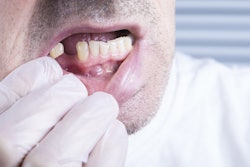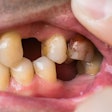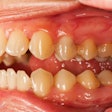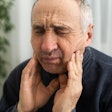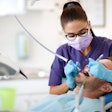Oral health knowledge may be lacking for too many patients, specifically men, younger adults, and those not getting routine periodontal therapy, according to a study published on May 21 in the European Journal of Dental Education.
It suggests that dental professionals need to be aware that these patients need more support and education about oral health, the authors wrote.
“The analysis revealed that males, patients not receiving regular active or supportive periodontal therapy, younger adults, and older seniors exhibited a need for improvement in their OHL (oral health literacy),” wrote the authors, led by Alicia Meyer-Hofmann of University Hospital Cologne in Germany.
To prevent and manage oral health problems, patients must have an optimal level of oral health literacy. Patients gain this knowledge by communicating with dentists and other oral health professionals.
To assess oral health literacy among patients undergoing treatment, a retrospective analysis was completed by evaluating the Oral Health Literacy Profile (OHLP), which assesses oral health behavior and knowledge, of adult patients treated by fourth- and fifth-year dental students. Statistical analyses and linear regression modelling were then conducted, according to the study.
Of the 222 questionnaires analyzed, 106 were from women and 116 were from men. The mean OHLP was 54.4 ± 16.1, the authors wrote.
Significant differences in oral health behavior and knowledge were seen in different age groups. The lowest oral health behavior was observed in younger adults (47.9 ± 18.9), while the highest was in older seniors (63.4 ± 22.9). Furthermore, the lowest oral health knowledge was observed in older seniors (29.1 ± 22.9). Also, oral health behavior levels were higher in patients with periodontitis, they wrote.
The regression model revealed age, female gender, periodontal therapy, and oral health knowledge as noteworthy predictors of oral health behavior (R2 = 0.25, p < 0.001), the authors wrote.
However, the study had limitations. Its retrospective design did not allow for conclusions to be made related to the possible effects of socioeconomic factors, including marital status, they wrote.
“Males, patients not receiving regular active or supportive periodontal therapy, younger adults, and older seniors exhibited a need for improvement in their OHL,” Meyer-Hofmann and colleagues wrote.





